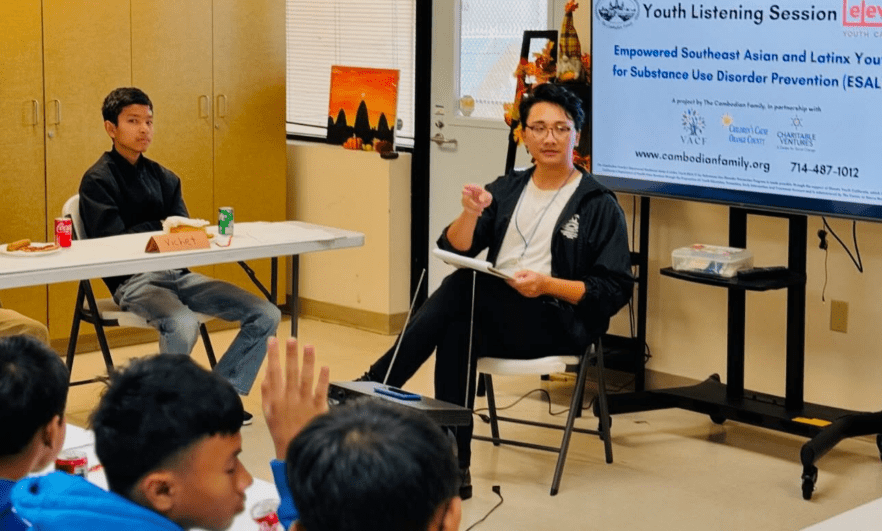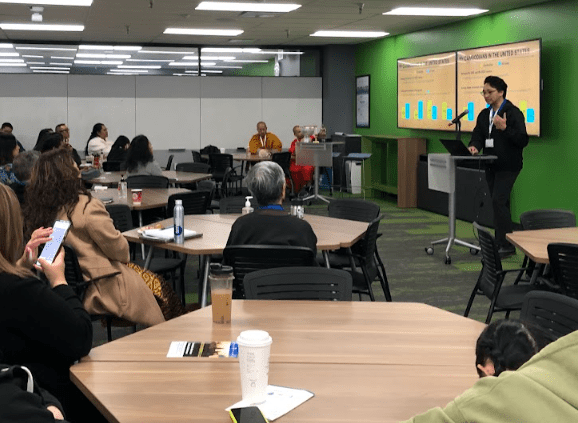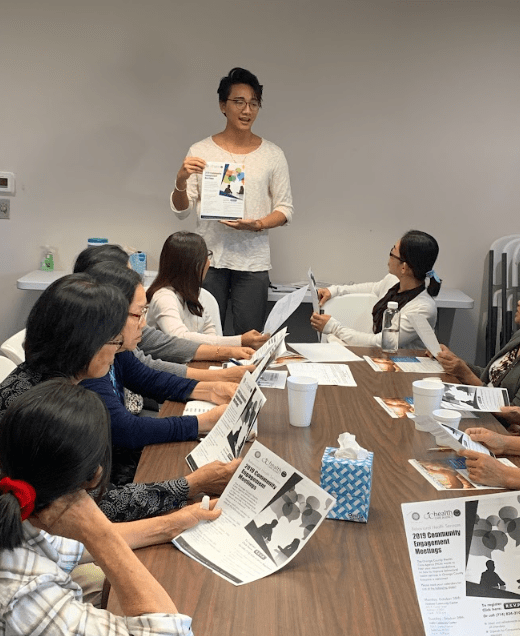By Ravi Seng
I grew up in a small central California town called Lamont. My family was one of the few Asian families in the area and we owned and operated a donut shop. Growing up in Lamont, I was often the only Asian kid in my classroom. Being Asian in general, but specifically Cambodian, felt abstract to me growing up. There were no references to Asian identity – let alone to Cambodian identity – in town, apart from the donut shop. Although I knew about my Cambodian heritage, I didn’t feel a part of the Cambodian community until I moved to Long Beach in high school. Moving to Long Beach was a culture shock – Khmer was spoken casually while I walked to school or walked home; the people standing in their yards looked like me, and I began to see myself in my community.

During my Master’s program for Race Studies and Asian American Studies, I worked at the UCI libraries under Dr. Thuy Vo Dang, who now teaches at UCLA. Dr. Vo Dang was the curator for the Orange County Southeast Asian Archives and they had a partnership with a humble agency called The Cambodian Family (TCF). Professor Vo Dang encouraged me to start archival preservation of their documents. I went over to TCF, put on my white archival gloves and started the work of preserving their precious documents. The Cambodian Family had a second floor that was stacked from floor to ceiling with boxes. With my work cut out for me, I started sorting through the photos, documents, and memories stored in that room. I still have those archival gloves as my own precious artifact from my first memories with TCF.
Since joining TCF one of my fondest memories was watching Cambodian elders and community members mobilize to ensure TCF received funding to support our programming. In June 2024, a grant which allowed us to serve older Cambodian folks and support our prevention and early intervention and mental health services would no longer be distributed to us. Our community members got wind of this and came together to defend the importance of their community receiving culturally and linguistically relevant services. Together, we prepared statements to deliver to the Board of Supervisors. We arrived at the meeting and the testimony by the community members proved powerful enough to move the Board of Supervisors to figure out how to adjust the money in order to fund the programs for the elders. Together, community partners and advocates saved a large contract that would ensure services could continue to be delivered.

Now through my participation in the SEAA Collaborative’s California Policy Seeding and Leadership Cohort (The Cohort), I’ve learned even more about the California legislative process alongside The Cohort members. Although we are all at various levels of leadership and experience, being a part of The Cohort has been a collaborative journey. I’m applying my learnings from The Cohort into TCF’s own leadership training program. I’m learning to reframe potential legislative challenges as opportunities for learning and a chance to become more knowledgeable on issues. Being part of The Cohort strengthens my capacity and the collective knowledge of TCF to be able to handle challenges.

Throughout this journey, I center the Cambodian aunts and uncles that embraced me and continue to trust me to fight for the needs of our community. This year, Cambodian Americans will honor 50 years of resettlement in the United States and despite the challenges and hardships, they continue to carry determination, strength, and a wonderful sense of humor. They are eager to help provide testimonials and public comments, to advocate, and to join our programming just so they can improve things for the next generation.
